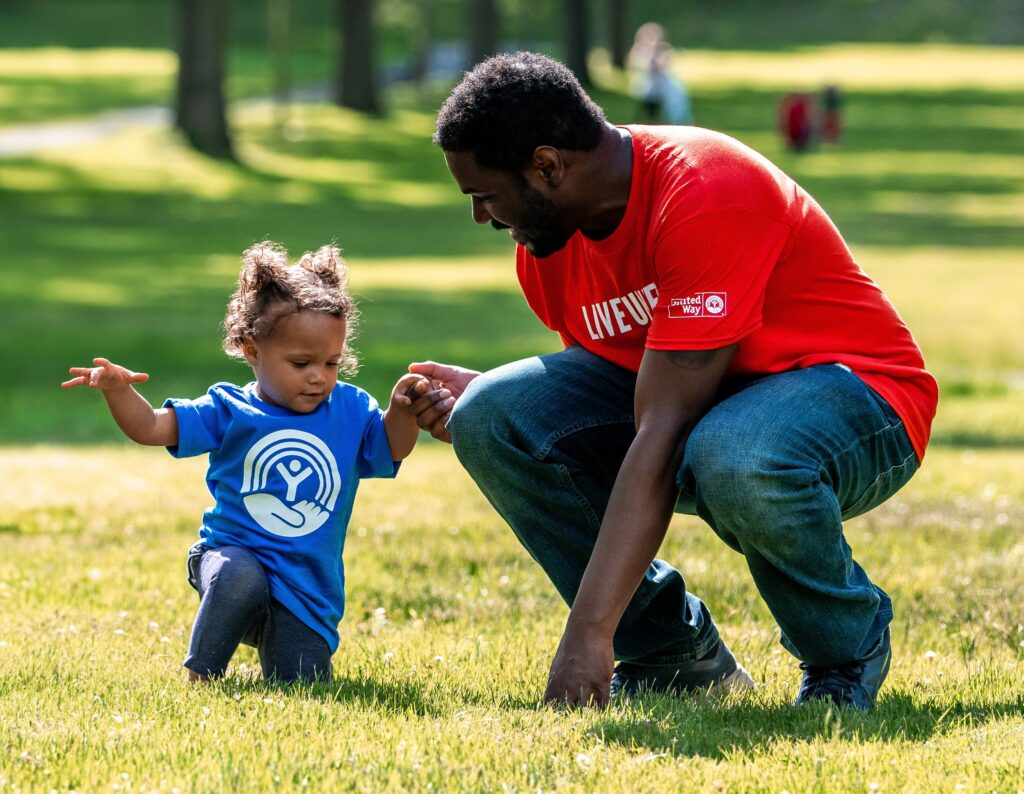RESOURCES
DEI MICRO-GRANTS
In 2024, United Way of Kennebec Valley (UWKV) will not open the Innovation Fund process.
2025 DIVERSITY, EQUITY AND INCLUSION (DEI) MICRO-GRANT APPLICATION
United Way of Kennebec Valley (UWKV) is pleased to announce the first year of Diversity, Equity and Inclusion micro-grants. Requests should be between $500 and $1,000. Funding must be used to support events or marketing projects that focus on improving accessibility and/or educating the community on diversity, equity and inclusion. UWKV plans to offer this micro-grants process annually through at least 2027.
UWKV will accept applications on a rolling basis and review them on a monthly basis throughout the year. When 2025 funds are exhausted, we will close the 2025 process.

ELIGIBILITY REQUIREMENTS
you are requesting funds must be able to say “yes” to all of the following questions.
Organization Eligibility Requirements
- Recipient organization is a nonprofit 501(c)(3), a public school district, a municipal entity, an Indian Tribal government, or can demonstrate a legal relationship with an established 501(c)(3) acting as its fiscal agent.
- Recipient organization has an annual independent audit performed and financial statements prepared in conformance with the Standards of Accounting and Financial Reporting for Voluntary Health and Welfare Organizations if the organization’s annual revenue exceeds $2,000,000. Applicants with revenues between $1,000,000 and $1,999,999 will have an audit or Review of Financial Statements. Applicants with revenues below $1,000,000 have an appropriate Internal Revenue Service Form 990 in lieu of an audit or Review of Financial Statements. These documents must be available upon request. Please note: These are the minimum requirements for funding, but UWKV recommends that organizations conduct an audit if revenues exceed $1,000,000.
- Funding must be used to support events or marketing that are happening or are being used in Kennebec County.
- Funding must be used to support events or marketing that are available/open to the public and not restricted to specific groups or audiences (e.g., this funding cannot be used for internal staff marketing/events).
- Organizations may request between $500 (minimum) and $1,000 (maximum).
- Organizations may apply once per calendar year, with funds being used in the same calendar year.
- Organizations agree to submit a brief grant report by January 31st of the following year.
Funding must be used to support events or marketing projects, including but not limited to:
- Hiring an ASL interpreter and/or spoken language interpreters
- Hosting events that focus on DEI and foster community understanding (ex: panels, lunch and learns, organization hosting a DEI resource-sharing expo)
- Hosting cross-cultural events (ex: international dinners, community “speed dating” to meet new people)
- Translating marketing materials
- Translating website
- Providing language options within voicemail recording
- This funding CANNOT be used for training costs.
Funding may NOT be used for:
- Capital expenses
- Endowments
- General operating expenses
View our guide for Best Practices for DEI in Marketing and Events.
For questions, please reach out to Katelyn Pushard at KPushard@uwkv.org.
PAST FUNDED PROJECTS
2022
AUGUSTA TEEN CENTER — $30,000
Augusta Teen Center's (ATC's) Edge Program gives Kennebec County teenagers the skills and training that will allow them to explore different job and career options before entering the workforce. The Edge Program, which is geared toward teens in ATC's Diversion to Assets and Alternative to Suspension programs, will match youth with local businesses that will teach and grow basic workplace skills that they may not otherwise have the opportunity to develop. Community partners in Augusta may support the program by offering host sites, mock interviews and resume assistance.
MID-MAINE HOMELESS SHELTER AND SERVICES—$30,000
Mid-Maine Homeless Shelter and Services (MMHSS) will operate a Winter Overnight Warming Center from Nov. 1 to Mar. 31.
Currently, MMHSS operates its 48-bed shelter at full capacity, which allows the organization to serve approximately 20 percent of those requesting services. The additional warming center will provide that critical overnight shelter to the people who need it most.
In addition to a safe place to sleep, the overnight warming shelter will provide bathrooms, showers, food and access to professional case management, housing navigation and programs like Rapid Rehousing—setting these individuals up for long-term success.
SOUTH PARISH CONGREGATIONAL CHURCH — $30,000
South Parish Congregational Church (SPCC), responds to the needs of Southern Kennebec County's homeless population during the coldest months of the year through an Emergency Overnight Warming Center.
This project seeks to address one piece of a much larger housing crisis by creating a low-barrier emergency overnight warming center located at SPCC and operated by a center director and team of trained seasonal staff.
The Center will benefit not only individuals seeking assistance, but the providers who work with them by establishing an effective, efficient and less costly way of ensuring that individuals have a safe place to sleep at night.
2021
BIG BROTHERS BIG SISTERS OF MID-MAINE — $30,000
Big Brothers Big Sisters of Mid-Maine's Bigs with Badges program aims to prevent children from seeing law enforcement as an adversary by connecting youth (Littles) with law enforcement officers and first responders (Bigs) to build lasting relationships through one-on-one mentoring.
HEALTHY COMMUNITIES OF THE CAPITAL AREA — $15,000
Healthy Communities of the Capital Area (HCCA)—The LGBTQ+ YeSS program will provide a safe, supportive environment for youth programming beginning in the summer of 2022. Not only does this project create a supportive network between youth-serving entities, but it is also a primary prevention project as it increases the protective factors of LGBTQ+ youth and reduces risk factors that are correlated with substance use, depression and anxiety.
